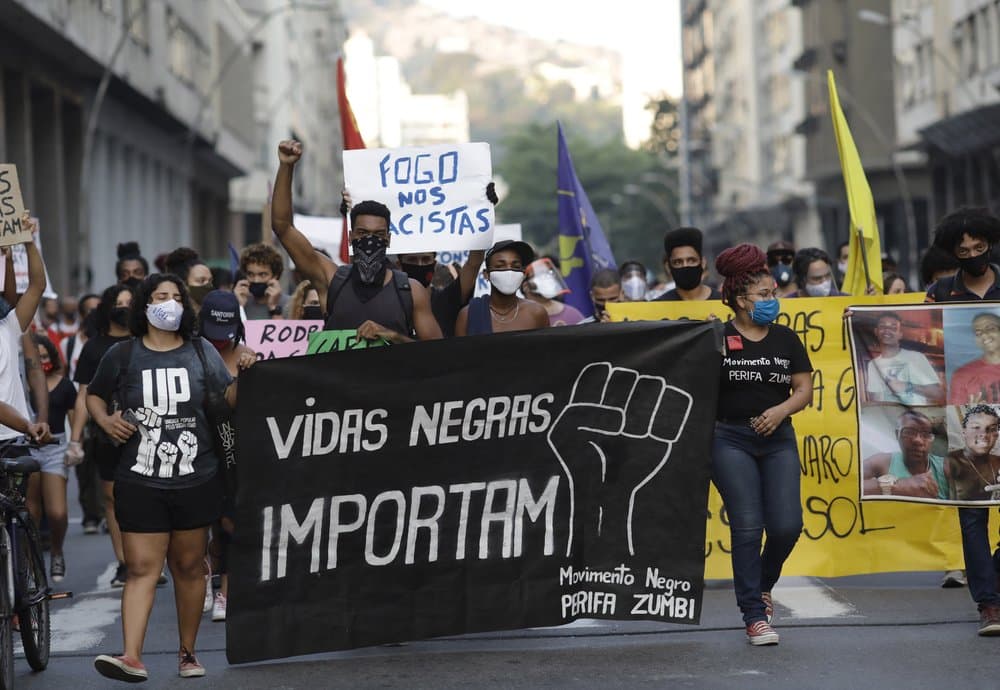SÃO PAULO – Ten years after being implemented by former left-wing President Dilma Rousseff, a racial quotas system in Brazil is set to end in 2022 and proponents fear that conservative President Jair Bolsonaro and his allies in Congress will not extend the program.
The social and racial quota act said federal universities should prioritize poor, Black, and indigenous students, and mandated that 50 percent of all candidates should come from public high schools, frequented by the poorest students in the country.
In Brazil, admission to public universities generally requires success in a highly competitive examination called vestibular. Students that come from expensive private schools and take paid preparatory classes for the vestibular are much more likely to pass the examination and be admitted to prestigious public universities than public school students.
In major cities like São Paulo, Black teenagers make up only 10 percent of the total number of private school students, one of the reasons the historical presence of Black students in universities has been low in Brazil. In 2011, before the law’s approval, only 11 percent of the university students in the South American country were Black. In 2016, four years after the law was implanted in the federal level – and inspired similar legislation in the States – the proportion went up to 30 percent.
Now, the percentage of Afro Brazilians in universities is estimated to have reached 40 percent of the total number of students. It is still lower than the share of Blacks in society – about 56 percent.
Black activists fear that the social and racial quotas act will be diminished if it is submitted to the scrutiny of the current administration.
“A study about the law’s implementation should have been conducted by the Ministry of Education, but the past and the current administrations cut the funds to do it,” said Father David Santos, a longtime Black activist and the founder of Educafro, a free preparatory course for vestibular examinations for Afro Brazilians and poor students.
Without such an analysis, the program is in danger, added Father Guanair Santos, a member of the Mariama Institute, which brings together Black members of the Brazilian clergy.
“If a revision is carried out during the current [Bolsonaro] misgovernment, there is a risk of jeopardizing the important achievements that we had over the years,” he told Crux.
Bolsonaro has expressed criticism to the adoption of racial quotas on several occasions. During presidential campaign in 2018, he said in an interview that the racial quotas in Brazil are “totally wrongful.”
“That is all a way of dividing society. We should not have special classes related to skin color, sex option, region, whatever. We are all equal before the law,” he said.
In that same interview, Bolsonaro said affirmative action is a kind of “victimism.”
“I remember Morgan Freeman, an American Black actor. He was asked how racism should be fought and he answered: ‘Stop talking about it’,” Bolsonaro added.
Educafro has been campaigning for the automatic extension of the quotas act for another 10 years, explained David Santos.
“We have been discussing it with Congressmen and senators. It is not possible for the politicians to debate the law now, given that the necessary study has not been done and people do not have the adequate information to analyze the issue,” he said.
He added that many obstacles prevented the full implementation of the social and racial quotas over the years, especially frauds. The law failed to provide guidance as to the definition of blackness, he said.
In Brazil, most people who identify as white have partial indigenous and African heritage. Since the implementation of the social and racial quotas for the universities – and for governmental jobs two years later – many candidates manipulated such racial fluidity and competed for admission as Black candidates, although they are widely perceived as white people in Brazilian society.
“Whites excluded from the exams after fraud attempts like those often sought help from the Judiciary. The law’s insufficiency in offering adequate direction concerning blackness allowed unfair judges to concede admission to white people who claimed to be Black,” David Santos explained.
The opposition to quotas from several judges is one among several challenges that Black activists have to face in order to seek the further inclusion of Afro Brazilians in the university, David Santos said.
The initial goal of the Black activists who have been struggling for the social and racial quotas since the 1980s was to reduce the abysmal inequality between whites and Afro Brazilians, and that is not even close of being achieved, said Father Guanair Santos.
“When we look at the universities and we see that there are more Black students now than years ago, we have a comforting feeling. But we still have a long way to go till the quotas are totally accepted by society,” he said.
Guanair Santos emphasized that many prejudices have been refuted by the concrete experience of the quota system, especially the idea that those students would not have the ability to keep up with their peers due to their poor primary and secondary education.
Years of research have shown, however, that their performance is generally superior to the other students’ performance.
Archbishop Zanoni Castro, who leads the Afro Brazilian pastoral ministry, said the social and racial quotas act is “a relevant achievement for the Brazilian society as a whole, not only for Blacks.”
“It diminishes inequality and strengthens the people’s rights. We cannot risk losing it,” he told Crux.
Castro remembered that the law’s approval was not a “gift” given by the government, but the fruit of decades of social struggle.
“We have to stand for it, Black popular movements and society as a whole. It is a way of repairing the great crime against humanity that slavery represented,” the bishop said.












